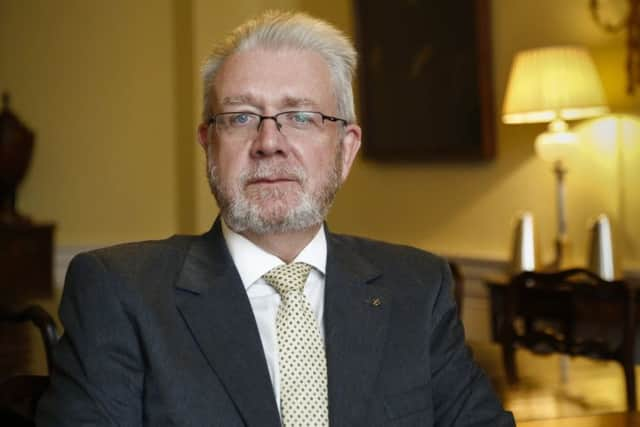What Brexit '˜constitutional crisis' could mean for Scotland
The First Minister reignited the prospect of a second constitutional vote after an influential Holyrood committee voted unanimously to reject the current incarnation of the UIK Government’s EU Withdrawal Bill.
As Theresa May continues to come under pressure from the right of her party to take a hard-line stance against Brussels in Brexit talks, the looming threat of MSPs rejecting the Brexit bill gives the Prime Minister another headache.
Advertisement
Hide AdAdvertisement
Hide AdConscious of the majority of Scots who voted to Remain, some of the new intake of Scottish Tory joined calls to amend Clause 11 of the bill.


The Scotsman exclusively revealed earlier today that the deadline to amend that bill in the House of Commons has passed without resolution.
We look at the latest stand-off and what could happen next.
‘Legislative Consent’
‘Clause 11’ might not sound like the most dramatic of names for a showdown, but the section of the EU Withdrawal Bill deals with powers that are in devolved areas, but which will transfer to the UK Government after Britain leaves the EU.


The report of the Finance and Constitution committee recommended that MSPs vote against Clause 11 in its current form.
Importantly, that includes the three Conservative members of the committee, allowing the SNP to argue a united front form MSPs.
The committee raised concerns about the devolution settlement, and promised to revisit the Brexit issue once Clause 11 is amended.
Given that this now won’t happen in the elected chamber of the House of Commons, a hugely significant vote from a majority (or even a totality) of MSPs would make winning over Holyrood arguably the most important challenge facing Theresa May’s Government.
What it means for Brexit
Advertisement
Hide AdAdvertisement
Hide AdEven if every single MSP at Holyrood voted against the EU Withdrawal Bill, and as a result the parliament neglected to provide ‘legislative consent’ to the Bill, that won’t stop Brexit in its tracks.
However, Michael Russell, the SNP’s Brexit Minister, has said that the Scottish Government will introduce their own bill, which would seek to either automatically transfer the powers to Holyrood, or try and keep some aspects of EU membership for Scotland.
While that wouldn’t stop Britain’s departure from the EU, due to take place on or before April 1 next year, it could prolong the looming constitutional crisis indefinitely, with either or both governments finding themselves arguing in court over the issue.
It could also embolden anti-Brexit Conservative rebels in the House of Commons, further adding to Theresa May’s woes.
What happens next
Typically, what happens next is plenty of arguments between the two Governments and politicians of all type.
Politically, the SNP feel there is mileage in pointing out in stringent terms the ‘democratic deficit’ that is the EU Withdrawal Bill in the unelected House of Lords.
As the party has no representation there, they will also argue they are being locked out of the chance to amend Clause 11 as part of what they call a post-Brexit ‘power grab.’
Off the back of our story, the SNP have already accused David Mundell of ‘selling out Scotland’ by missing the deadline.
Advertisement
Hide AdAdvertisement
Hide AdCiting Ms Sturgeon’s comments about the irresistible nature of another referendum, UK Government sources are likely to paint the First Minister as simply spoiling for a fight over Brexit in order to enact her lifelong dream of a separate Scotland.
For now, Clause 11 heads to the Lords, and the SNP is emboldened by the cross-party consensus emerging from the constitution committee.
Like so many issues arising from Brexit, this ‘constitutional crisis’ is nowhere near resolution, and it could be a long road to get there.
